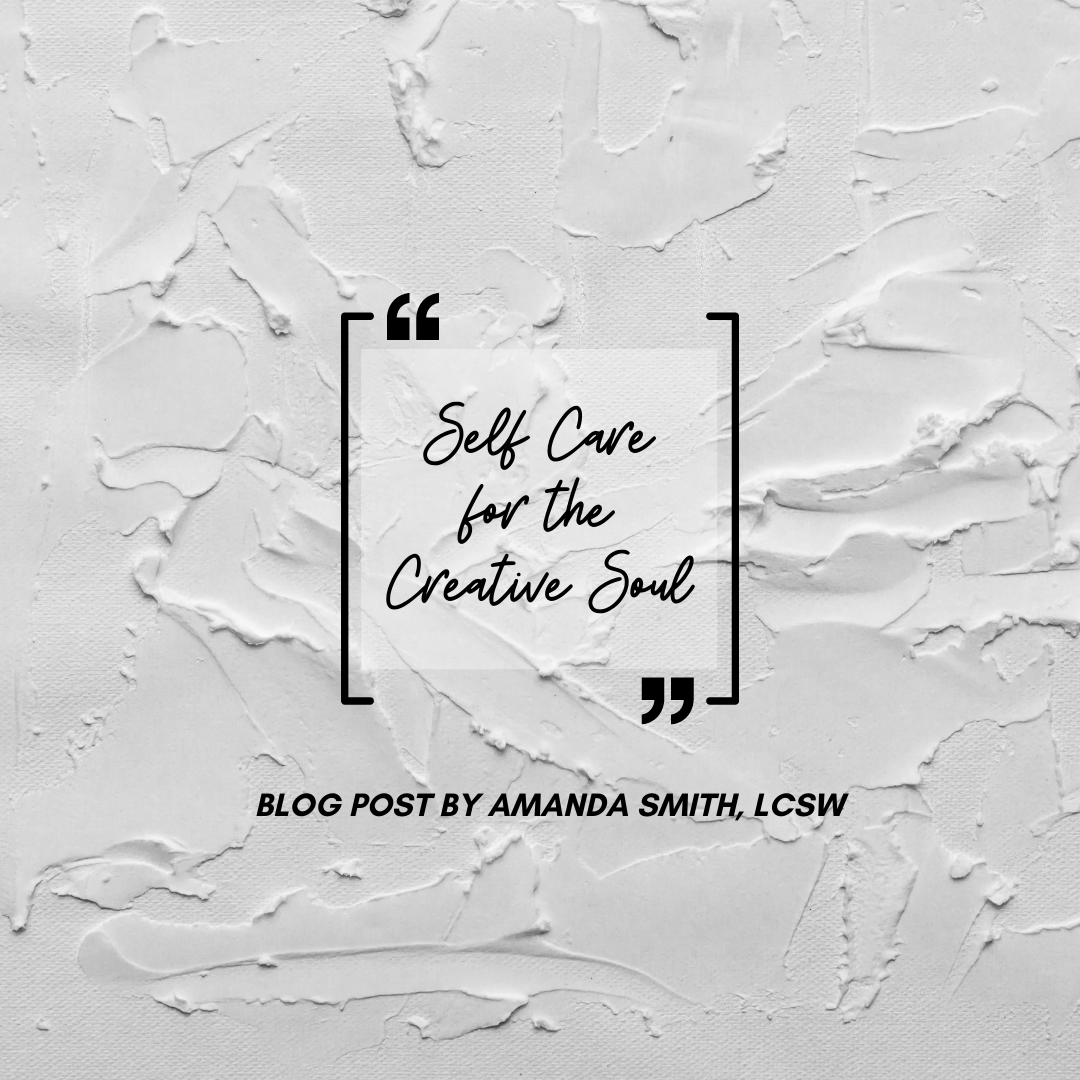Self-Care for the Creative Soul
by Amanda Smith, LCSW
When it comes to self-care, knowing ourselves is the key. We are all uniquely designed with various values, interests, habits, and hobbies. So it makes sense that not all types of self-care work for everyone. For those of us who are creatives, there are many opportunities to find self-care in the things we already love and enjoy. Pulling from things we like to do makes it much easier to jump into the game of practicing good self-care.
I’ve learned that creativity, like most things, is on a spectrum. Everyone has some element of creative energy, but some of us know it as the fuel that keeps us going. So when it comes to designing a self-care practice, tapping into this natural energy source can give us a big head start.
There are many ways that we can practice self-care in creative ways. The relaxation and healing benefits of self-exploration through artistic expression are endless. Many creatives already have established artistic practices and routines, so starting to integrate self-care can be a pretty seamless experience. One of the most common aversions to self-care is the fear that it will be too overwhelming, taking too much time and energy. The best way around this is to be intentional in finding self-care in things that we already do and enjoy.
What creative practices do you already own? Some people like to journal or paint or make things. Some of us enjoy cooking and baking, decorating, or fixing stuff. All of these are creative practices, and all of these things can be self-care. Figuring out what you are already doing to take care of yourself is the first step in practicing effortless self-care.
What creative practices have you done in the past? What did you love doing as a kid? Sometimes it’s tough to think of the things that we are currently doing. Creatives can easily get stuck in a rut of blocked creative energy. When this happens, it is helpful to reflect on what has worked and try to replicate these strategies. If you like to paint as a kid, it’s probably a great stress reliever as an adult.
The trick to all of this is recognizing and intentionally reconstructing our thoughts. From a Cognitive-Behavioral perspective, our thoughts affect our feelings and actions. Our thoughts have enormous power. What we think determines a lot about how we live and view our lives. If we can start to insert positivity into our daily narrative, it can make a world of difference. So if the things that we enjoy doing are also healing, why not tell ourselves that? Why not take a mindful moment to recognize the creative self-care that we already practice? Go ahead, paint a picture, start a project, write a poem, make something, fix something; whatever you do, make sure you give it the self-care credit it deserves.
